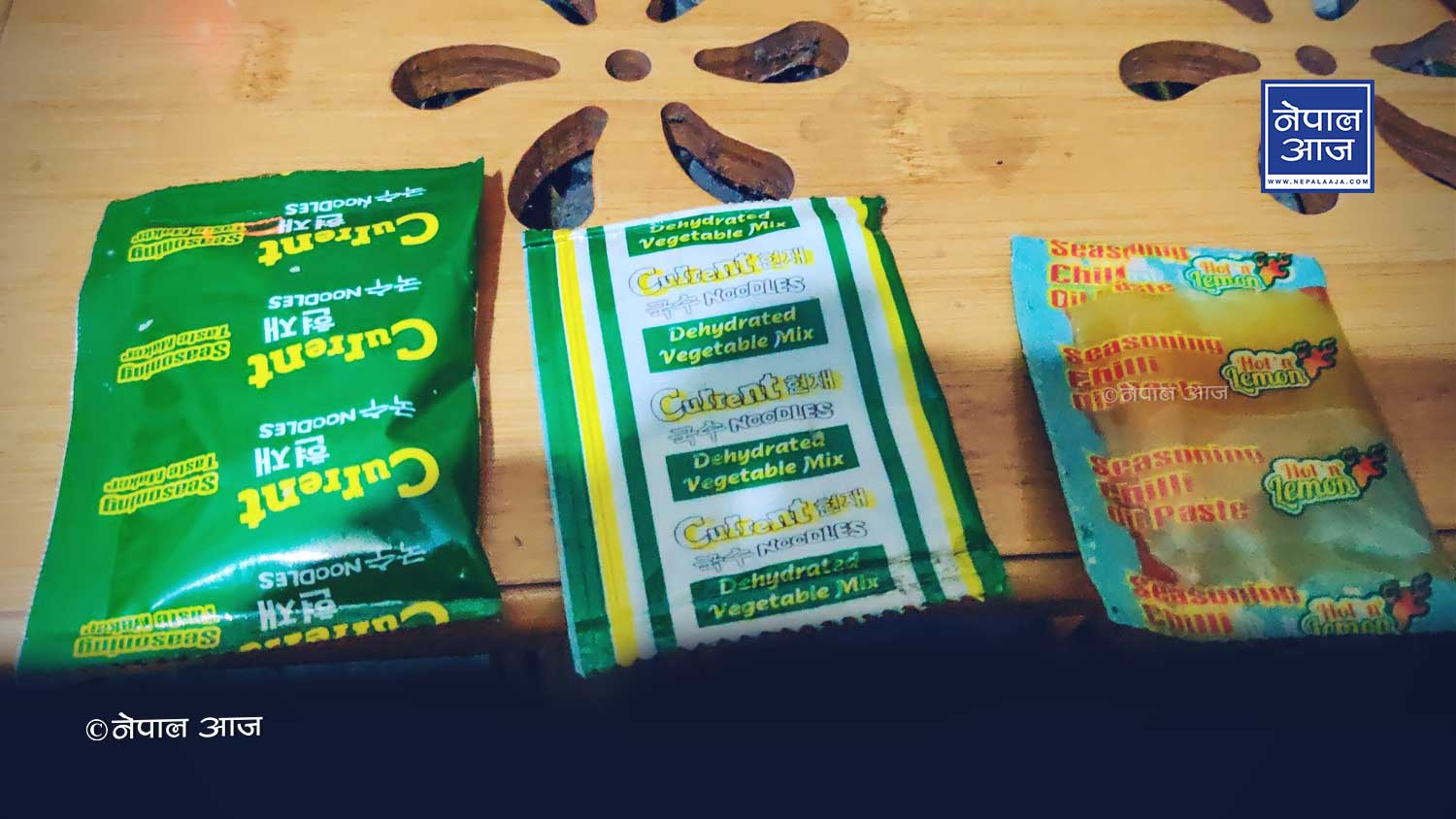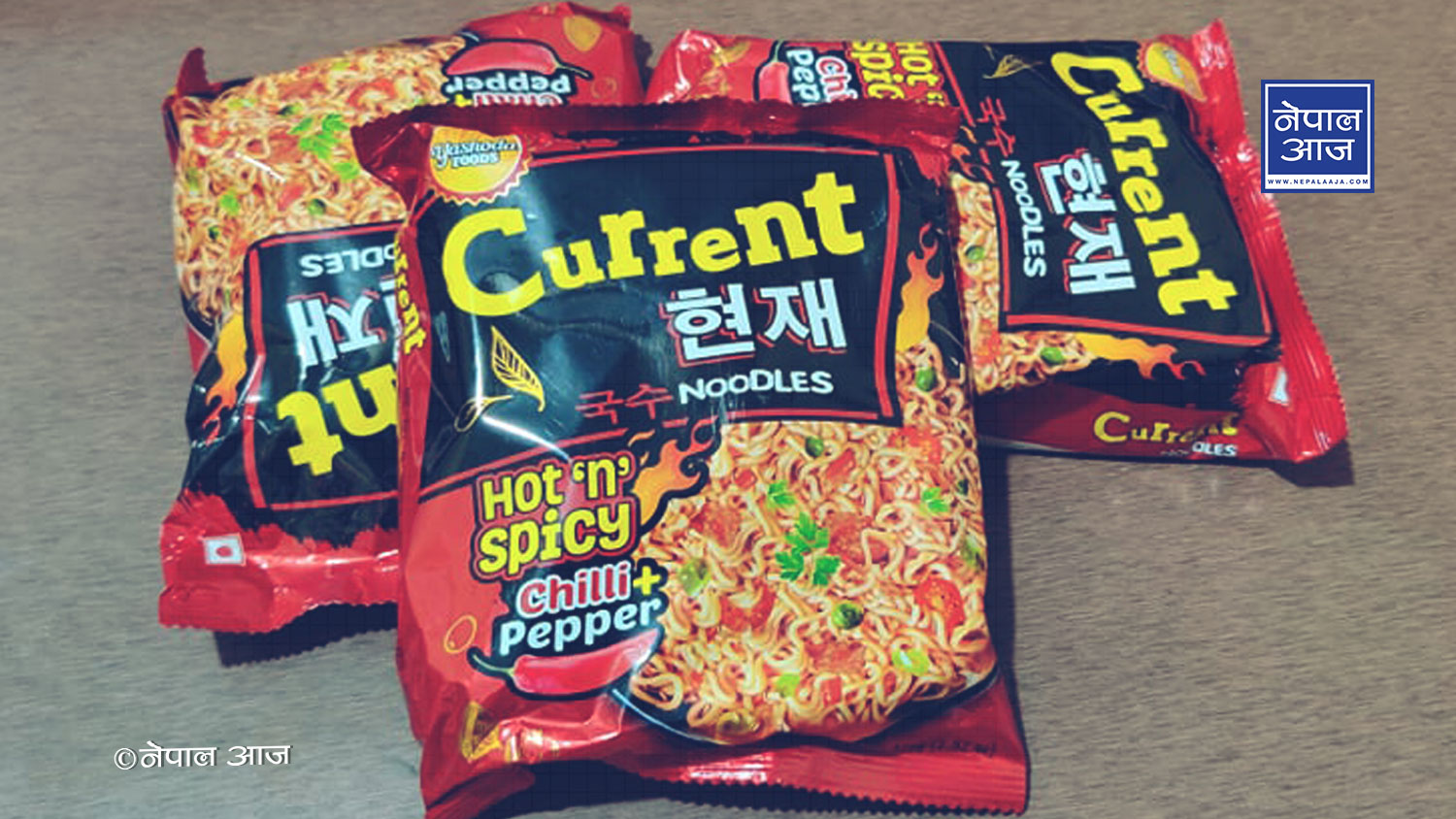From Nepal to the World: The Fiery Success of 'Current Noodles'!

The Nepali instant noodle market, long dominated by established brands and the popularity of imported Korean ramen, has recently experienced a seismic shift. The introduction of locally-produced "Current Noodles," infused with Akabare chilli, has shaken up the market, capturing the attention of consumers and pushing other brands to the sidelines.
The Rise of Akabare Chilli-Infused Noodles
With the onset of the COVID-19 pandemic, the import of Korean ramen—once a favorite among Nepali consumers—came to a halt. Seizing this opportunity, Yashoda Foods launched "Current Noodles," a product that mimics the spicy and rich flavor profile of Korean ramen but with a distinctly Nepali twist. The key ingredient? Akabare chilli, a native hot pepper from Nepal’s hilly regions, known for its fiery taste and health benefits.
"Current Noodles" quickly gained popularity, particularly among the younger demographic, who were drawn to its intense flavor and affordable price. While a pack of Korean ramen cost around NPR 150, "Current Noodles" offered a similar taste experience at just NPR 50 per pack, making it an attractive alternative for budget-conscious consumers.
Local Flavors Meet Global Demand

The success of "Current Noodles" is not just a local phenomenon. As its popularity soared in Nepal, the brand began expanding into international markets, including the U.S., Japan, Australia, Canada, and Italy. This expansion highlights the growing global demand for authentic, locally-sourced flavors that resonate with consumers looking for something unique and exotic.
Other Nepali companies, such as Asian Thai Foods, have also tapped into this trend, producing noodles that incorporate indigenous ingredients like Timmur (Sichuan pepper) and Hing (asafoetida). These local flavors have helped Nepali noodle brands carve out a niche in the competitive instant noodle market.
Impact on Local Agriculture
The rise of "Current Noodles" has also had a significant impact on local agriculture, particularly the cultivation of Akabare chilli. To ensure a steady supply of this key ingredient, Yashoda Foods has partnered with agricultural cooperatives in regions like Arghakhanchi, Gulmi, Palpa, and Hetauda. The company has provided advance payments of NPR 1 million each to these cooperatives, encouraging farmers to increase their production of Akabare chilli.
This initiative has not only ensured a consistent supply of the ingredient but has also provided farmers with a stable and lucrative source of income. As demand for "Current Noodles" continues to grow, so too does the cultivation of Akabare chilli, benefiting both the local economy and the farmers who produce this essential crop.

A New Era in the Nepali Noodle Market
For nearly a decade and a half, the Nepali instant noodle market was dominated by a few key players. However, the arrival of "Current Noodles" has disrupted this status quo, introducing a new flavor profile that has captivated consumers. Its spicy, authentic taste, combined with an affordable price, has made it a favorite among young Nepalis, who are now turning to this locally-produced alternative over imported options.
As "Current Noodles" continues to make waves both locally and internationally, it is clear that the Nepali instant noodle market has entered a new era—one where local flavors reign supreme, and innovation drives success. This shift not only underscores changing consumer preferences but also highlights the potential of Nepali food products on the global stage.

![From Kathmandu to the World: How Excel Students Are Winning Big [Admission Open]](https://nepalaaja.com/img/70194/medium/excel-college-info-eng-nep-2342.jpg)
